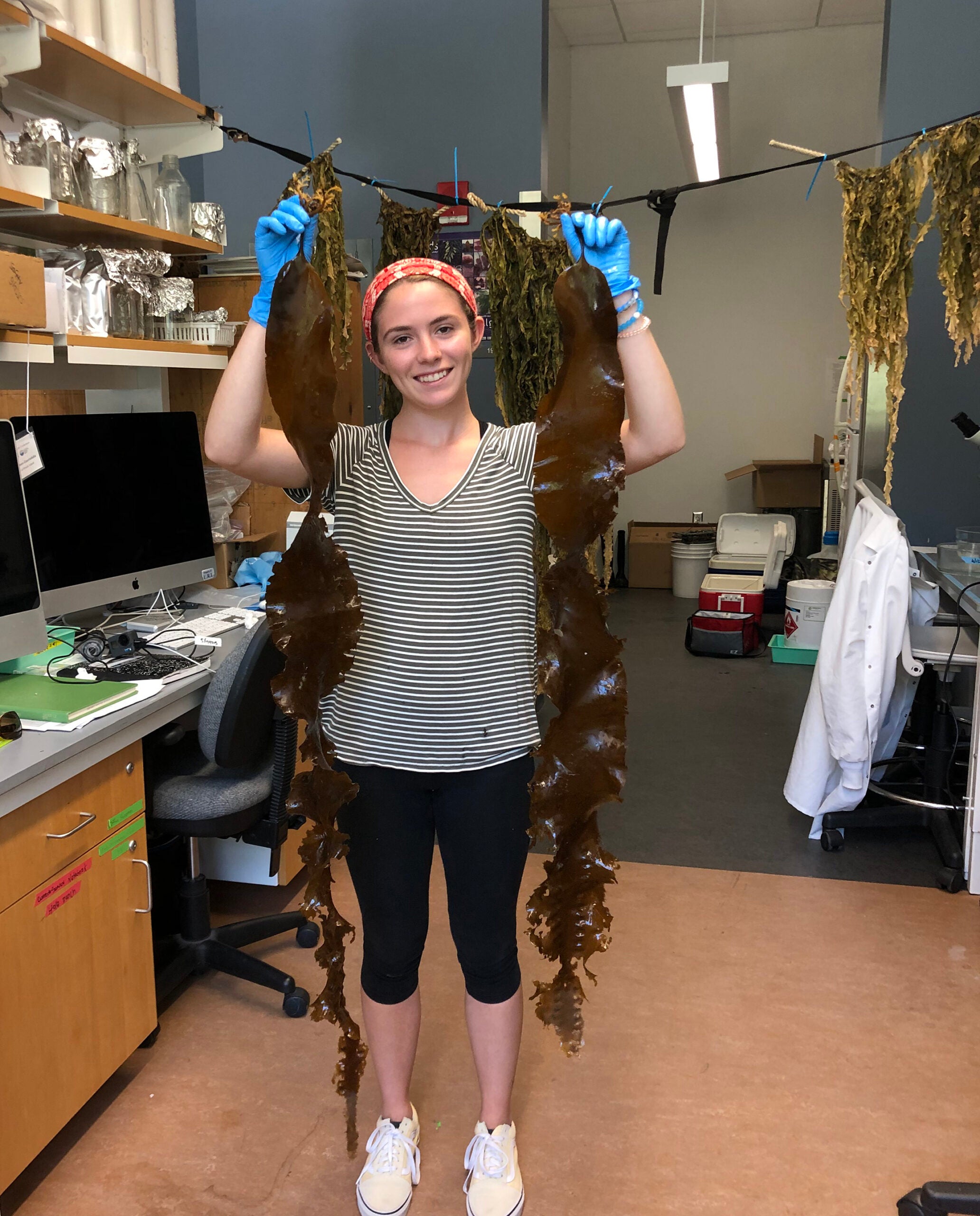KINGSTON, R.I. – Aug. 13, 2019 – Populations of two varieties of seaweed found in Narragansett Bay are going in opposite directions, according to recent research by a University of Rhode Island undergraduate.
Rockweed, a common intertidal species found throughout the bay, is on the increase, while sugar kelp, a subtidal species confined to the lower bay, is slowly declining in abundance.
“I expected to see a decline in both, since both prefer cold water and the oceans and bay are getting warmer,” said Gabrielle Pantoni, a rising senior from Goshen, New York. “The increase in rockweed was especially surprising to me, and I’m still not sure why it’s happening.”
The marine biology major spent 10 weeks scuba diving in shallow water collecting seaweed samples and shooting video along 30 meter transects at 24 sites that were similarly studied in the 1970s and 1980s. She later identified the varieties of seaweed at each location and assessed the percentage of the sites covered by each species, then compared her results to the data from four decades ago.
Pantoni speculates that rockweed may be increasing because competitors may be avoiding the area as the waters warm, or perhaps because the warmer temperatures are actually the optimal condition for the species.
Working in collaboration with postdoctoral researcher Lindsay Green-Gavrielidis and biology instructor Niels-Viggo Hobbs, Pantoni’s work was part of a larger research project examining changes in the seaweed, invertebrate and fish communities in nearshore habitats.
Her research was supported by URI’s Summer Undergraduate Research Fellows program, which provides undergraduates with detailed insight into real-world research as a means of helping them decide upon a future career path. The fellowship is funded by the National Science Foundation and the Rhode Island Established Program to Stimulate Competitive Research.
“I learned that I really like research more than I thought,” Pantoni said. “I always thought about being a research scientist, but I was never sure until I got into it. I got interesting results and results that confused me and forced me to ask more questions, which was rewarding.”
This wasn’t her first experience conducting research, however. Pantoni did an independent research project while spending a semester studying in Bermuda during her junior year. As part of her classwork, she studied upside-down jellyfish in the genus Cassiopeia to determine how increasingly warm waters affect them.
“Upside-down jellyfish lay on the ground in mangrove environments with their tentacles up in the air,” she explained. “I collected 10 of them, put five in ambient water temperature and five in warmer water, then did respiration and photosynthesis experiments to determine how they differ. I didn’t get significant results, so they seem to be pretty temperature tolerant.”
The incoming president of URI’s Marine Science Society, Pantoni also served as a volunteer in Mystic Aquarium’s Fish and Invertebrate Husbandry section, where she spent time learning how to care for jellyfish and other marine life.
With one year until graduation, Pantoni is already looking ahead to the next steps in her career path. She is planning to go to graduate school to earn a doctorate and eventually hopes to become a college professor.
“I want to do research, but I also want to teach,” she said. “Mostly, though, I want to continue learning more about the ocean, so I’m keeping my options open and I’ll see where it takes me.”

